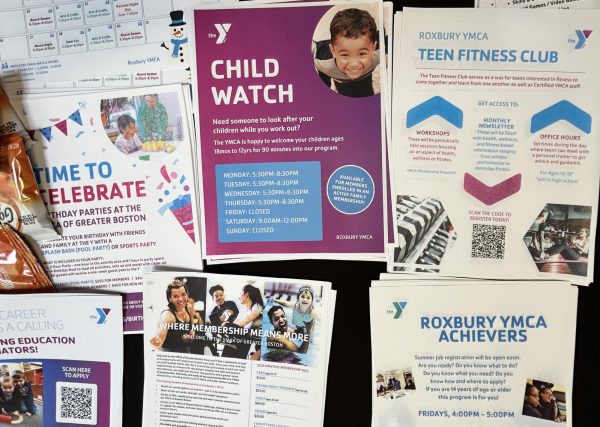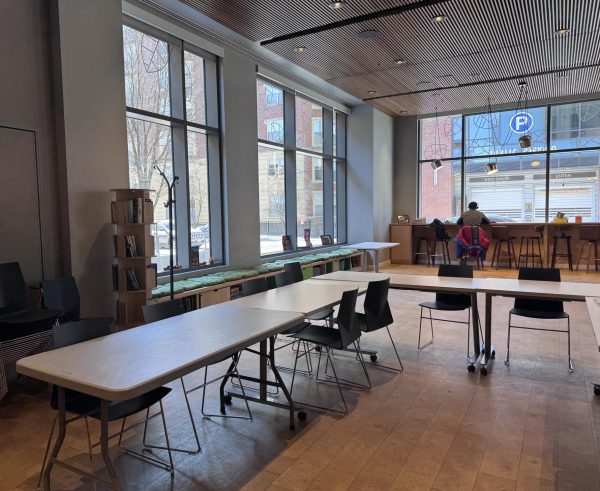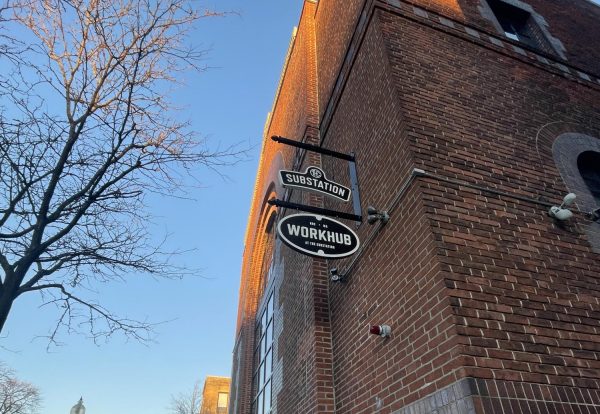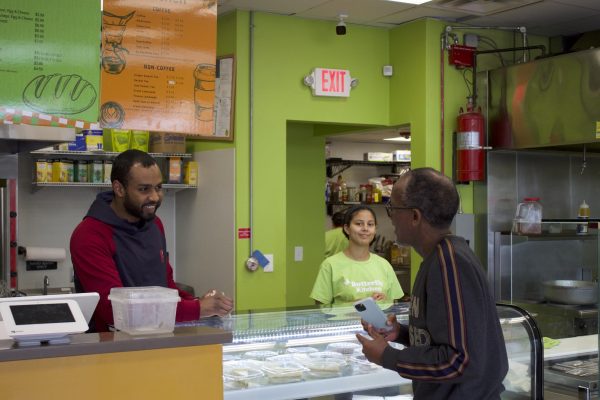Changemaker: About Fresh aims to reduce disparities in diet-related diseases
When Josh Trautwein was working in community health, he noticed a disconnect between the types of food that healthcare providers would recommend and the types of food that his patients had access to.
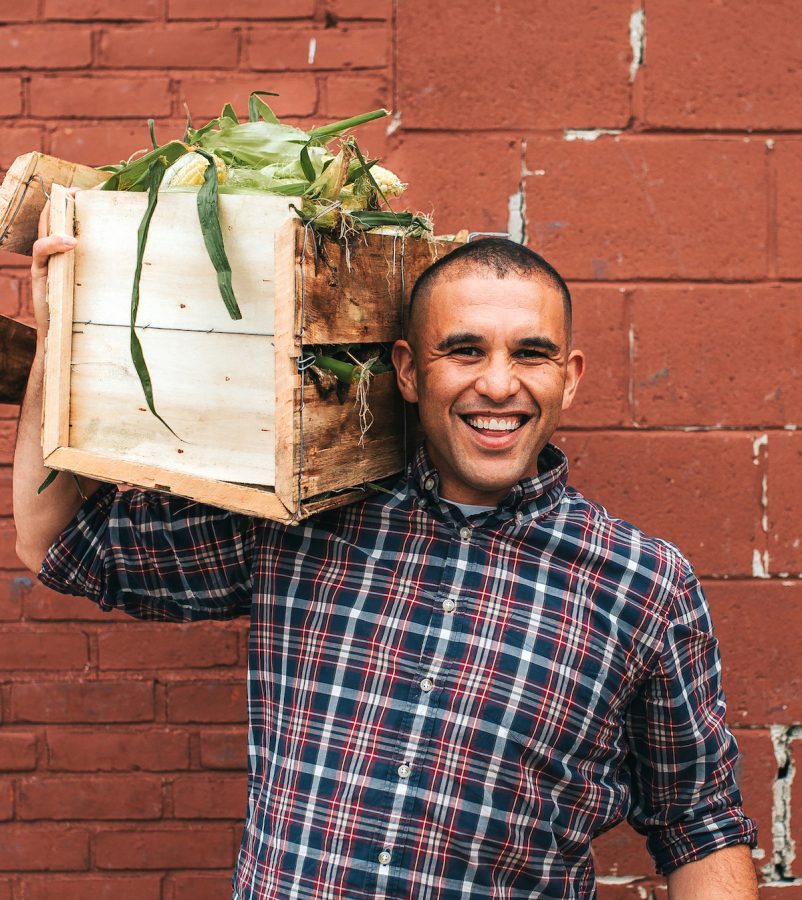
During the COVID-19 pandemic, produce and organic goods can be out of reach for many people, either because they are too expensive or because there is no nearby grocery store that sells them. So Josh Trautwein, the co-founder and C.E.O. of nonprofit About Fresh, set out to bring food that is both nutritious and affordable to the communities in Boston that need it the most.
When Trautwein was working in community health, he noticed a disconnect between the types of food that healthcare providers would recommend and the types of food that his patients had access to.
“I was coordinating a nutrition education program for a group of longtime single moms, when the only grocery store in the neighborhood closed, and we couldn’t do anything about it as a healthcare provider,” he said. “Despite the fact that food is such an important driver of our health outcomes, it’s very much divorced from how we take care of patients.”
The experience inspired him and his co-founder Annika Morgan to launch About Fresh, a nonprofit devoted to fighting food insecurity in Boston. However, the organization doesn’t just provide food; it also partners with local social programs and healthcare organizations to ensure that those who need healthy food the most have access to it.
“Our mission is to really transform the way that healthcare invests in solutions to address food insecurity,” Trautwein said. “We’re working towards building a case for deeper, sustained investment in food as a social determinant of health, not only through healthcare, but also through government agencies.”
About Fresh has now launched three distinct programs to help reduce food insecurity around Boston. The first, Fresh Truck, consists of school buses converted into mobile markets that drive across Boston and the surrounding area selling affordable, fresh fruits and vegetables to neighborhoods where produce options are limited. The Fresh Truck currently operates in Brookline, Charlestown, Dorchester, East Boston, Hyde Park, Mission Hill, Roslindale, Roxbury, South Boston and the South End.
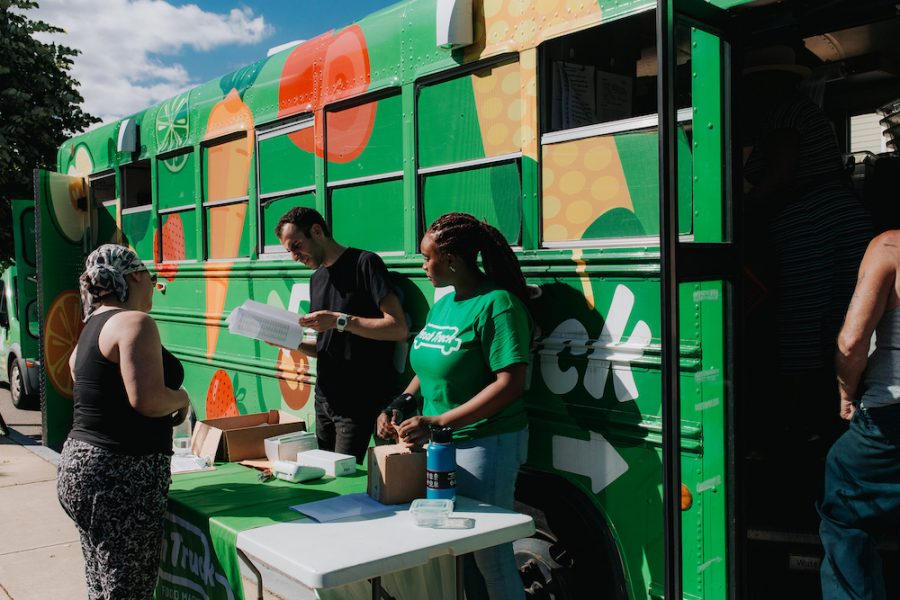
“Oftentimes for a lot of families, it’s a lot cheaper to feed your family by purchasing really unhealthy calories,” he said. “And that is obviously contributing to disparities in diet-related diseases. So our work is really focused on addressing those disparities and diet-related health issues in low income communities around Boston by ensuring that they have the money they need, and ensuring that there’s food close by.”
About Fresh’s second program, Fresh Connect, also works to reduce food insecurity by partnering with healthcare organizations and the local government to subsidize the cost of fresh produce.
“When a patient is showing up in a doctor’s office, and they’re getting sick, and they’re screening positive for food insecurity because they don’t have enough money to afford the food that they need to be healthy, one of our providers who is partnered with us, can administer one of our Fresh Connect cards,” Trautwein said. “They’re able to log into a web-based platform to enroll that patient in Fresh Connect, where they can assign funding to a card, and they can establish the duration for how long the funding will last. And then that patient can use that card to go shopping [for food].”
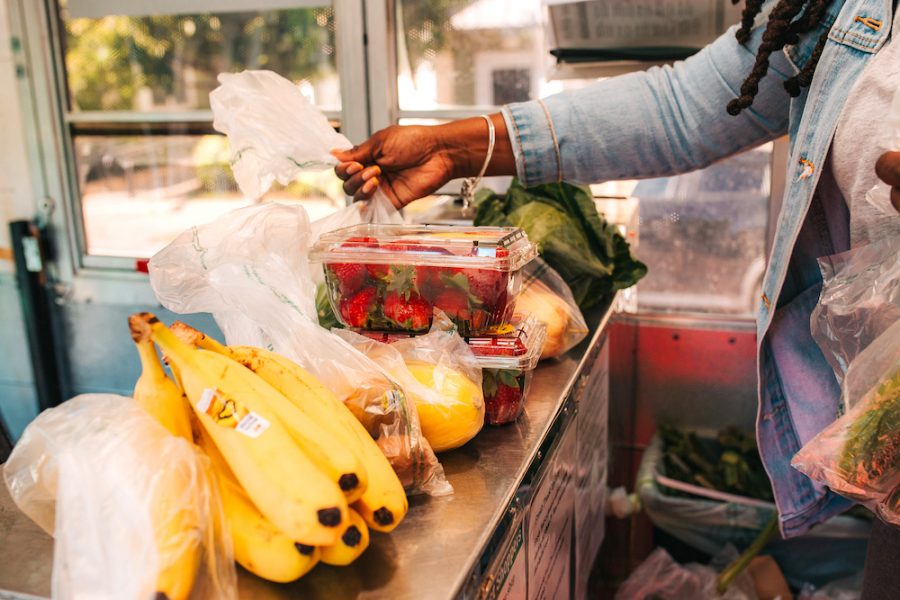
The cards, which function like debit cards, are currently only accepted at the Fresh Truck mobile markets. However, Trautwein hopes to expand the program to encompass other local grocery stores and even restaurants.
“Looking forward just a few weeks, we’ll have Fresh Connect online, hopefully at Farmers Markets and then at a few small retailers,” he said. “The idea is to expand Fresh Connect as a payment method across as many grocery retailers as we can, so we’re giving our shoppers as many options as possible to go shopping for healthy food.”
While some of the funding for About Fresh comes from grants or donations, the organization’s partnership with the Department of Transitional Assistance drives the majority of About Fresh’s sales.
“We are an eligible vendor for the Healthy Incentives Program, most people know it as HIP,” Trautwein said. “As part of that program, every shopper that’s enrolled in EBT [Electronic Benefits Transfer] gets between $40 and $80 a month, depending on your household size, in extra money to spend on fruits and vegetables at mobile markets, CSAs [Community-Supported Agriculture] and farmers markets around the city.”
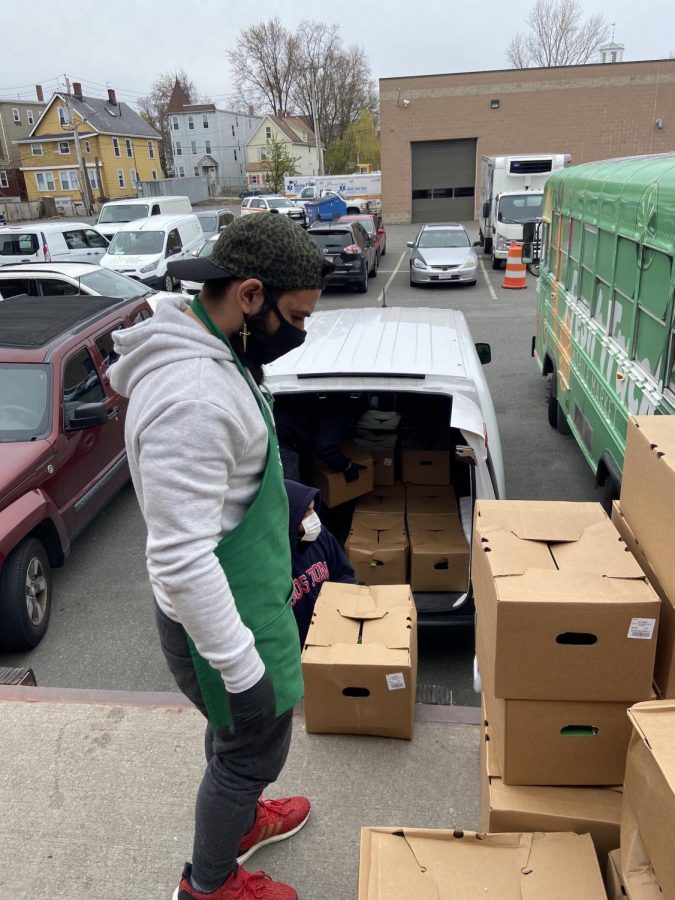
About Fresh’s newest program, which launched at the onset of COVID-19, brings affordable produce and other groceries directly to residents’ doorsteps. Within roughly six months, Fresh Box has made 80,000 deliveries, and is one of the only food delivery programs that accepts SNAP benefits. The program, Trautwein said, is “really focused on addressing food insecurity for the households who are at highest risk for COVID-19, [such as] elders, individuals with underlying health conditions, and then COVID positive households.”
About Fresh’s programs are part of what Trautwein sees as a growing movement to identify and treat root causes of healthcare issues, and reduce the negative impacts of social determinants of health.
“Our MassHealth Medicare and Medicaid systems are transitioning to this model of healthcare where they are focused on improving health outcomes and containing healthcare costs by addressing the upstream drivers of health outcomes and health care costs, so things like homelessness, food insecurity, housing, even employment and workforce development,” he said. “In line with that model of care, our Mass healthcare systems are investing in solutions to increase access to healthy food and to address food insecurity within their patient populations.”
He hopes to expand the Fresh Connect program to other cities and states across the country, and to eventually create better policies to address food insecurity and its impact on long-term health.
“All of our programs are addressing the consequences of the underlying inequitable systems that are creating disparities across low-income communities, most severely in low-income communities of color,” Trautwein said. “Our programs are going to continue to do that work to address those consequences and to take care of families until we achieve that state of greater equity.”






